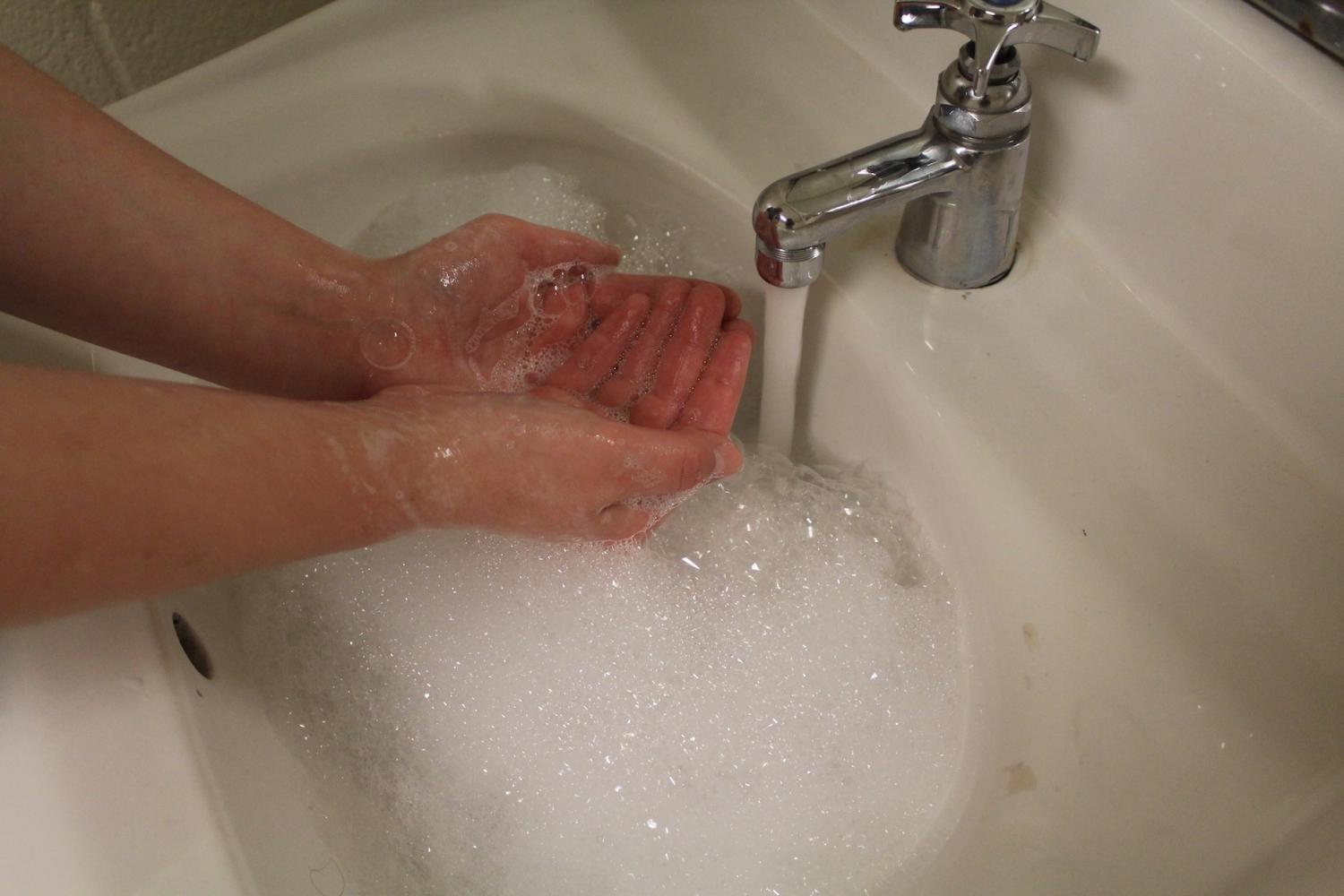Guide to not getting sick this fall season
Washing hands with soap and lukewarm water helps prevent germs from entering the body through contact with the mouth and nose.
September 5, 2017
As students start school and adapt to the new environment, their surroundings introduce new germs, and their bodies try to remain in homeostasis (from Greek, meaning “steady”).
When one’s body systems do not cooperate the way they need to, the immune system must defend itself and ensure that unknown substances do not take over. When introduced to germs, the hypothalamus gland increases the body’s overall temperature, resulting in a decreased equilibrium.
Often an unstable body produces an insufficient amount of red blood cells, making it difficult to fight through the pathogens in the immune system. The real question pertains; How can students prevent illnesses while being exposed to a whole new environment of fresh germs?
- Take good care of your body. For example, make sure to drink plenty of fluids to prevent dehydration. Adding in honey or lemon into hot tea soothes a sore throat. . A hydrated body equals a healthy body. Those who drink water throughout the day ensure proper function for their body systems and help flush toxic waste. When dehydrated, cellular respiration does not occur properly, leading to potential infections.
- Rest. Remember all those nap times that you took for granted in Kindergarten? The human body needs to rest and relax through REM, Rapid Eye Movement Cycle, which enables the body to completely relax and function properly. Allowing the body to relax permits the immune system to fight against any pathogens that could result in infectious bacteria entering the body.
- Wash your hands. To prevent germs from entering through the nose or mouth, wash hands with soap and lukewarm water. Do not trust anything you touch, especially in school, and carry around an accessible hand sanitizer in your bag.
- Exercise. Exercising regularly will improve blood circulation and boost the immune system’s function. Daily exercise can help maintain one’s homeostasis and prevent illnesses.
- Go to the doctor. Even with the correct care, in some circumstances, the common cold can easily become an infection. According to American Rhinologic Society, sinus infections serve as the most common infection that pediatricians diagnose. While this situation may seem like a minor issue, physicians must prescribe patients with antibiotics to help cure infections.
At the end of the day, everyone knows their own body and what work best for them. Some people can rest for only two days and will have no problem standing on their feet while continuing with their daily activities. For others, however, they need to seek their physician and need medication such as antibiotics to cure any infections.
Sports Medicine teacher Angie Guggino emphasizes the importance of staying home when sick and how to prevent becoming ill.
“Wash your hands a lot. And please, do not come to school when you have a fever.” Ms. Guggino said.








